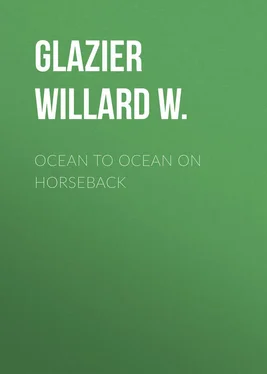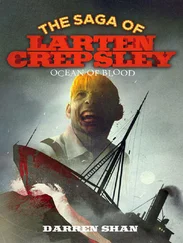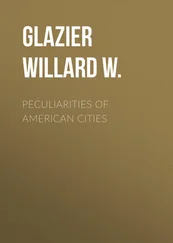Willard Glazier - Ocean to Ocean on Horseback
Здесь есть возможность читать онлайн «Willard Glazier - Ocean to Ocean on Horseback» — ознакомительный отрывок электронной книги совершенно бесплатно, а после прочтения отрывка купить полную версию. В некоторых случаях можно слушать аудио, скачать через торрент в формате fb2 и присутствует краткое содержание. Жанр: foreign_antique, foreign_prose, Путешествия и география, на английском языке. Описание произведения, (предисловие) а так же отзывы посетителей доступны на портале библиотеки ЛибКат.
- Название:Ocean to Ocean on Horseback
- Автор:
- Жанр:
- Год:неизвестен
- ISBN:нет данных
- Рейтинг книги:4 / 5. Голосов: 1
-
Избранное:Добавить в избранное
- Отзывы:
-
Ваша оценка:
- 80
- 1
- 2
- 3
- 4
- 5
Ocean to Ocean on Horseback: краткое содержание, описание и аннотация
Предлагаем к чтению аннотацию, описание, краткое содержание или предисловие (зависит от того, что написал сам автор книги «Ocean to Ocean on Horseback»). Если вы не нашли необходимую информацию о книге — напишите в комментариях, мы постараемся отыскать её.
Ocean to Ocean on Horseback — читать онлайн ознакомительный отрывок
Ниже представлен текст книги, разбитый по страницам. Система сохранения места последней прочитанной страницы, позволяет с удобством читать онлайн бесплатно книгу «Ocean to Ocean on Horseback», без необходимости каждый раз заново искать на чём Вы остановились. Поставьте закладку, и сможете в любой момент перейти на страницу, на которой закончили чтение.
Интервал:
Закладка:
Reflecting further upon the various modes of travel, I was led to conclude as the result of much experience that he who looks at the country from the windows of a railway car, can at best have only an imperfect idea of the many objects of interest which are constantly brought to his notice. Again, a journey in the saddle, wherein the rider mounts and dismounts at will as he jogs along over the highway, chatting with an occasional farmer, talking with the people in town and gazing upon rural scenes at his pleasure, presents many attractive features to the student and tourist who wishes to view the landscape, to commune with nature, to see men and note the products of their toil and to learn something of their manners and customs.
Having therefore decided to make my journey in the saddle, I at once set about to secure such a horse as was likely to meet the requirements of my undertaking. As soon as my purpose was known, horses of every grade, weight and shade were thrust upon my attention and after some three weeks spent in advertising, talks with horse fanciers and in the livery and sale stables of Boston, my choice fell upon a Kentucky Black Hawk, one of the finest animals I had ever seen and, as was subsequently established, just the horse I wanted for my long ride from sea to sea.
His color was coal black, with a white star in the forehead and four white feet; long mane and tail; height fifteen hands; weight between ten and eleven hundred pounds, with an easy and graceful movement under the saddle; his make-up was all that could be desired for the objects I had in view. The price asked for this beautiful animal was promptly paid, and it was generally conceded that I had shown excellent judgment in the selection of my equine companion.
A few days after my purchase I learned that my four-legged friend had been but a short time before the property of an ex-governor of Massachusetts and that the reason he had but recently found his way into a livery stable on Portland street, was that he had acquired the very bad habit of running away whenever he saw a railway train or anything else, in short, that tended to disturb his naturally excitable nature. This information led to no regrets, however, nor did it even lessen my regard for the noble animal which was destined soon to be my sole companion in many a lonely ride and adventure.
The unsavory reputation he had made, and possibly of which he was very proud, of running away upon the slightest provocation, smashing up vehicles and scattering their occupants to the four winds, was considered by his new master a virtue rather than a fault, so long as he ran in the direction of San Francisco, and did not precipitate him from his position in the saddle.
As soon as I was in possession of my horse the question of a suitable name arose and it was agreed after some discussion among friends that he should be christened Paul Revere , after that stirring patriot of the Revolution who won undying fame by his ride from Boston and appeals to the yeomanry the night before the Battle of Lexington.
CHAPTER II.
BOSTON AND ITS ENVIRONS
The month of April, 1876, found myself and horse fully equipped and ready to leave Boston, but I will not ride away from the metropolis of New England without some reference to its early history and remarkable development, nor without telling the reader of my lecture at Tremont Temple and other contemplated lectures in the leading cities and towns along my route.
Boston, standing on her three hills with the torch of learning in her hand for the illumination of North, South, East and West, is not one of your ordinary every-day cities, to be approached without due introduction. Like some ancient dame of historic lineage, her truest hospitality and friendliest face are for those who know her story and properly appreciate her greatness, past and present. Before visiting her, therefore, I recalled to memory those facts which touch us no more nearly than a dream on the pages of written history, but when studied from the living models and relics gain much life, color and verisimilitude.
Boston Harbor, with its waters lying in azure placidity over the buried boxes of tea which the hasty hands of the angered patriots hurled to a watery grave; Boston Common, whose turf grows velvet-green over ground once blackened by the fires of the grim colonial days of witch-burning, and again trampled down by innumerable soldierly feet in Revolutionary times; the Old State House, from whose east window the governor's haughty command, "Disperse, ye rebels!" sounded on the occasion of the "Boston Massacre," the first shedding of American blood by the British military; and the monument of Bunker Hill – these, with a thousand and one other reminders of the city's brilliant historical record, compose the Old Boston which I was prepared to see. The first vision, however, of that many-sided city was almost bewilderingly different from the mental picture. Where was the quaint Puritan town of the colonial romances? Where were its crooked, winding streets, its plain uncompromising meeting-houses, darkened with time, its curious gabled houses, stooping with age? Around me everything was shining with newness – the smooth wide streets, beautifully paved, the splendid examples of fin de siècle architecture in churches, public buildings, school houses and dwellings.
Afterwards I realized that there was a New Boston, risen Phoenix-like from the ashes of its many conflagrations, and an Old Boston, whose "outward and visible signs" are best studied in that picturesque, shabby stronghold of ancient story, now rapidly degenerating into a "slum" district – the North End.
Boston, viewed without regard to its history, is indeed "Hamlet presented without the part of Hamlet." It would be interesting to conjecture what the city's present place and condition might be, had Governor Winthrop's and Deputy-Governor Dudley's plan of making "New-towne" – the Cambridge of to-day – the Bay Colony's principal settlement, been executed. Instead, and fortunately, Governor Winthrop became convinced of the superiority of Boston as an embryo "county seat." "Trimountain," as it was first called, was bought in 1630 from Rev. William Blackstone, who dwelt somewhere between the Charles River and what is now Louisburg Square, and held the proprietary right of the entire Boston Peninsula – a sort of American Selkirk, "monarch of all he surveyed, and whose right there was none to dispute." He was "bought off," however, for the modest sum of £ 30, and retired to what was then the wilderness, on the banks of the Blackstone River – named after him – and left "Trimountain" to the settlers. Then Boston began to grow, almost with the quickness of Jack's fabled beanstalk. Always one of the most important of colonial towns, it conducted itself in sturdy Puritan style, fearing God, honoring the King – with reservations – burning witches and Quakers, waxing prosperous on codfish, and placing education above every earthly thing in value, until the exciting events of the Revolution, which has left behind it relics which make Boston a veritable "old curiosity shop" for the antiquarian, or indeed the ordinary loyal American, who can spend a happy day, or week, or month, prowling around the picturesque narrow streets, crooked as the proverbial ram's horn, of Old Boston.
He will perhaps turn first, as I did, to the "cradle of Liberty" – Faneuil Hall. A slight shock will await him, possibly, in the discovery that under the ancient structure, round which hover so many imperishable memories of America's early struggles for freedom, is a market-house, where thrifty housewives and still more thrifty farmers chaffer, chat and drive bargains the year round, and which brings into the city a comfortable annual income of $20,000. But the presence of the money-changers in the temple of Freedom does not disturb the "solid men of Boston," who are practical as well as public-spirited. The market itself is as old as the hall, which was erected by the city in 1762, to take the place of the old market-house, which Peter Faneuil had built at his own expense and presented to the city in 1742, and which was burned down in 1761.
Читать дальшеИнтервал:
Закладка:
Похожие книги на «Ocean to Ocean on Horseback»
Представляем Вашему вниманию похожие книги на «Ocean to Ocean on Horseback» списком для выбора. Мы отобрали схожую по названию и смыслу литературу в надежде предоставить читателям больше вариантов отыскать новые, интересные, ещё непрочитанные произведения.
Обсуждение, отзывы о книге «Ocean to Ocean on Horseback» и просто собственные мнения читателей. Оставьте ваши комментарии, напишите, что Вы думаете о произведении, его смысле или главных героях. Укажите что конкретно понравилось, а что нет, и почему Вы так считаете.





![Джон Сэндфорд - Ocean Prey [calibre]](/books/384313/dzhon-sendford-ocean-prey-calibre-thumb.webp)






